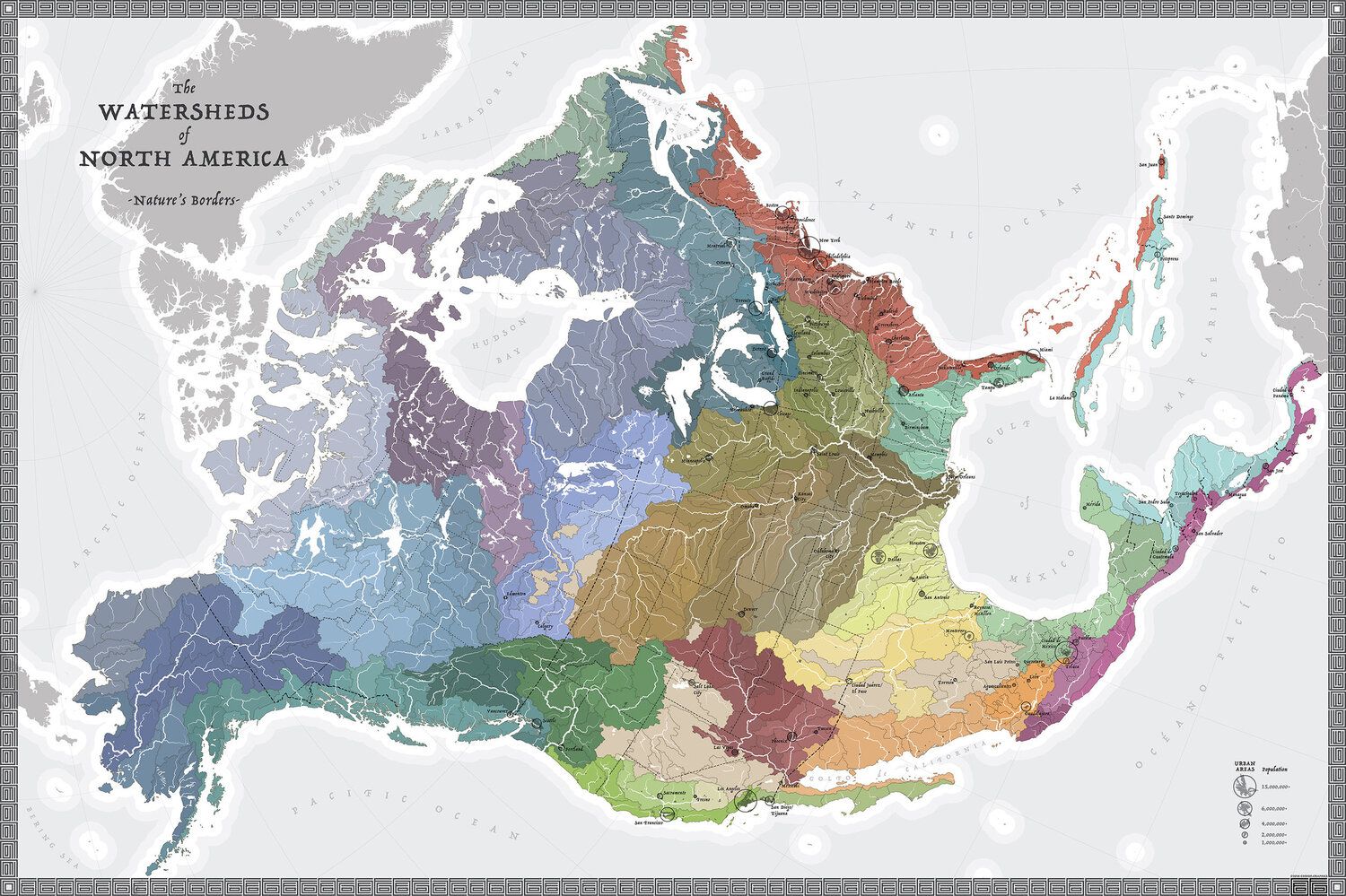Bioregionalism is one of many thought-products from the modern birth-period of environmentalism, the 1970s. The basic idea is simple, but you can arrive at it from many directions, and direct it to different ends.
Essentially, bioregionalism is a call to situate human activities in their natural environmental contexts. This is not quite the same as matching society to an ecosystem because the bioregion includes geographic features, such as watersheds, and cultural dimensions, such as ethnic groups and their land-relations, in ways that a pure ecological description would not.
The coherent core is that, however you define the natural environment, there is value in putting human development into physical and living context, in ways that conventional political and economic science never has.
The why of bioregionalism is possibly more instructive than the what. Bioregionalism is a helpful outlook for those seeking real solutions to the sustainability and climate crisis because of the following reasons:
- Concrete limits | Most of sustainability is concerned with resource and impact limits in some way. Bioregionalism makes those limits specific and tangible: this waterway shall be cleared of pollution, these resources shall be used sustainably.
- Specific nature | An extension of concrete limits, but with deeper implications, is more precise preservation goals: these species shall be protected, this landscape shall be protected. This is not just resource conservation, but regard for the non-human world for its own value and for aesthetic reasons.
- Contextual industry | Bioregionalism, in making resources and nature more tangible, actually advances the environmental cause by inviting industry, but in a more contextual way. Once a context is establish, and the clear goal is to maintain it, it adds a kind of stability to economics that most producers would never expect.
- Cultural identity | All of the above add up to a reinforcement, or a renewal, of notions of cultural and personal identity being embedded in place: textures, seasons, cycles. These have been lost in industrial, technical, urban modernity. Everyone loves apple pie: but, if you know which they are, you'll love pie made with rare apple varieties from your home region even more.
While ecology is not the same as bioregionalism, it is true that as ecological science extends naturally into the study of social-ecological boundaries, and mutual resilience practices, bioregionalism is increasingly backed by science.

Bioregionalism is helpful in particular in food and climate change debates.
Food obviously comes from a biological place, and goes to a human place, and the food system story is one of the decline, and revival of bioregionalism. A lot of modern chefs are passionate practitioners of the bioregional outlook.
Climate is a global phenomenon, but it affects people, and must thus be managed, differentially in specific contexts. The is a powerful reminder of the irreducible fact of sustainability: the environment is a thing, not an idea, and it catches up to you everywhere. If agriculture collapses as a result of climate change, it collapses in a bioregion: this is not fantasy thinking.
Bioregionalism is not finished or flawless concept. Some gaps are obvious:
- Urbanization | Modern cities are almost entirely separate from their bioregions, except in the most mechanical ways. It's hard to reframe a large conurbations in terms of historical biological and landscape processes that have not shaped society or economy directly for generations. Are they new bioregions? Do we treat invasive species or pets or zoo animals as 'native' to cities?
- Definitions | Bioregions are conceptually imprecise, and different definitions will clash. If an indigenous culture herds cattle across a wide area, that otherwise covers multiple soil types, watersheds, ecosystems, how is the bioregion defined?
- Human systems | There are a lot of human systems— cultural, economic, technical—that don't respect bioregional boundaries. Taxation, imports, even pollution: these are by nature trans-boundary phenomena. Should they be limited to bioregions? Does bioregionalism mean banning holidays, giving up national currencies and fiscal subsidies? Can families split across bioregions? Who fixes problems that span bioregions?
Bioregionalism is, overall, an emerging concept, but with increasing relevance and popularity as the environmental issues, chiefly climate, make themselves visible. Global climate change might worry you—but what's the betting you'll be even more concerned when the apple orchards you raided as a kid have died out as a result of the bioregional climate no longer supporting them?


